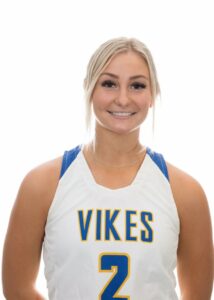How you can use the PLN interactions of this course to further your digital identity post-term?
I will use my PLN interactions from EDCI 338 to further my digital identity post-term by continuing to learn by sharing ideas, experiences, and resources with classmates on Mattermost. The blogs that have been posted by my classmates throughout the course has provided me with valuable information and given me insight into a variety of different perspectives on what our digital identity is and the role it has in my professional development. By taking a step back and being critical about my digital identity, I have realized that there is a certain level of responsibility that comes with using social media for personal and professional purposes. The valuable lessons that I have learned on how to “manage and protect my reputation in public and private online spaces” and how important it is to be media literate in today’s online world, will help me communicate and collaborate in a much better way(Olivera, 2014). I also think the PLN interactions from this class will help remind me to stay focused on the two areas of my digital identity that Costa & Torres highlight; presentation and reputation(Olivera, 2014). My presentation will encompass how I work online and how I engage and interact in shared spaces, and my reputation will focus on the perspective that others have of me. By expanding my digital identity, I will build trust with the people I interact with and this will improve my online reputation and credibility. I am hoping that my PLN interactions in this class will continue post term because I have met a lot of cool people and I hope to stay connected through various social media platforms.
What does it mean to have a digital identity in your industry of choice and can your current PLN be used to help professional development post-course?
As a fifth year Recreation and Health student at UVic, it is important to have a digital identity that is well respected by my peers. As a varsity athlete, it is important to have a digital identity that is an honest reflection of who I am and how much I value representing my team, teammates, coaches and university, in a respectful way. It is a challenge to keep my personal and professional digital identities separate and my current PLN will continue to support me in achieving a balance between the two. When I graduate next year, one of my goals is to try and play basketball professionally overseas. I hope to continue to expand my PLN and connect with people that may be able to help me achieve this goal. If my dream does not work out, I will continue to expand my PLN with people who have similar interests in working in the recreation and health field. No matter what direction I take, the goal will be to continue to build a network of people with whom you are connected to in order to learn and that is created according to personal interests and needs, providing learning opportunities, providing answers to questions and contributing to mutual learning(Olivera, 2014).
As you progress through the steps of your career, can your PLN be relied on to open professional opportunities?
I think that as I progress through my career, my PLN can be used to help open professional opportunities because it not only provides me an opportunity to share resources and ideas with other professionals anywhere in the world, but it also provides me a way to share my knowledge with others and a way to gain new perspectives. After all, a PLN is a group of colleagues and/or professionals that you can connect with in order to enhance your personal learning and take charge of your own professional development. I believe that learning never stops and the connections that I have made and will make, will provide me with opportunities for professional growth.
References
Oliveira, N. R., & Morgado, L. (2014). “Digital Identity of Researchers and Their Personal Learning Network.” Learning and Collaboration Technologies. Technology-Rich Environments for Learning and Collaboration, 469–475. doi: 10.1007/978-3-319-07485-6_46
 Hi My name is Calli McMillan and I am a 5th year Recreation Recreation and Health Education student. I have lived in Victoria all my life and I have one sister and a pug named China. I went to high school at Claremont Secondary school and I was recruited to play basketball for the varsity women’s team at UVic. I am a point guard and I am in my last year of eligibility. In my spare time, I like hanging out with my teammates and taking my dog for walks. As for life after university, I am considering completing a PDPP in Elementary Education.
Hi My name is Calli McMillan and I am a 5th year Recreation Recreation and Health Education student. I have lived in Victoria all my life and I have one sister and a pug named China. I went to high school at Claremont Secondary school and I was recruited to play basketball for the varsity women’s team at UVic. I am a point guard and I am in my last year of eligibility. In my spare time, I like hanging out with my teammates and taking my dog for walks. As for life after university, I am considering completing a PDPP in Elementary Education.